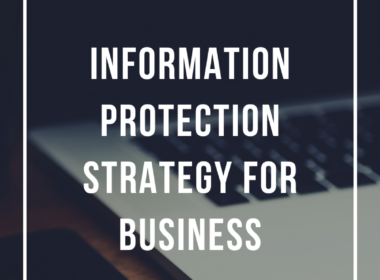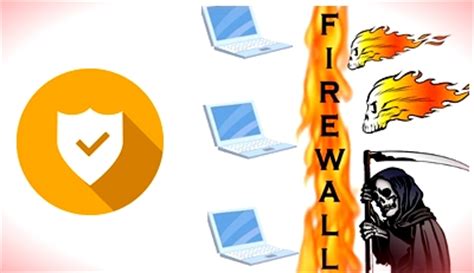Many people often do not know the difference between Antivirus and a Firewall. As many people know it, firewall and antivirus are mechanisms which provide security to systems. However, you need to know that there is a different vulnerability between the two. Firewalls help control network traffic in the system by acting as barriers for incoming traffic, whereas antiviruses protect systems against internal attacks by perceiving or spotting malicious files and viruses. Antivirus and firewall are part of the Cyber Security which safeguard systems. However, there is a massive distinction in how they operate and work. The primary emphasis of firewalls is inspecting data that flows from the internet to the computer while that of antiviruses is examining malicious programs through procedural steps which include detecting, identifying, and removing. According to experts, knowing the difference between the two mechanisms will enable you to make the right decision and purchase an appropriate cybersecurity solution for your system. This article seeks to explain further and discuss the difference between a firewall and antivirus.
What Is Antivirus Software?
Before we go further into the dissimilarities of firewalls and antiviruses, we first need to define antivirus. So, what is antivirus software? Antivirus software is a cybersecurity mechanism that many PCs and Offices use often. Its primary function is to scan, spot, and inhibit any apprehensive or distrustful files and software from getting into the system. Antiviruses thwart a further attack on or damage of the system by deleting or isolating the corrupt file and monitoring traffic on the internet.
Additionally, many traditional antivirus software incorporates detection of susceptibility, additional scanning of regular antivirus, and control of internet traffic.
What is Firewall software?
A firewall is a standard approach software that protects local computer assets from external threats. It acts as a barrier between the World Wide Web and your network. Firewalls monitor inbound and outbound traffic from computers as well as prevent apprehensive packets from leaving or entering the network. An example of a standard firewall tool is the Windows Firewall in Windows 7. Firewall hardware nowadays is inbuilt in routers, and they help safeguard your network from other networks.
The Three Types of Firewalls
There are firewall types comparisons based on interception location, communication location, and the state in which data tracing takes place. They include;

- Network layer firewall. It has a packet filter that monitors incoming and outgoing packets. It then offers security by allowing or discarding these packages by predefining filter rules.
- Application-level firewall. It works for specialized software and applies security mechanisms to inhibit undesirable traffic over the network.
- Circuit level firewall. This firewall accepts specific packets to go through the network and completely restricts others. Additionally, it safeguards the network by hiding the IP address over the internet.
Inhibition vs. Security
Firewall virus protection observes traffic in the network thereby inhibiting malicious data from entering the network hence thwarting viruses. However, the virus can enter your computer through a spam link, download, or from a flash drive. Moreover, once it bypasses the firewall protection, the antivirus’ role comes in handy.
Antivirus scans and spots the malware to bar it from dispersing further either by obliterating or segregating the corrupt file. Moreover, even though the firewall halts the malware and viruses from entering the system, it cannot delete the cyber threat which is infecting the system.
Variance in Problem Approach
Antivirus and firewall protection use different strategies to protect systems from further damage. An antivirus uses the heuristics approach to spot and eliminates an assortment of malware from your computer, and a firewall protects it from interference and malicious threats. A firewall permits the entry of good packets into your system and negates the entry of bad packets. Thus, in a nutshell, an antivirus removes any malware or virus from your system through detection while a firewall protects the imposition and snooping eyes of hackers.
Antivirus vs. Firewall: Quick Synopsis of Significant Contrasts
Below is a quick summary of the primary differences between a firewall and an antivirus.
- A firewall has the capability of preserving both the software and hardware on the network while an antivirus protects other software as it is impartial software.
- A firewall inhibits malicious software from entering into the system while an antivirus removes corrupt files and software from your computer and network.
- A firewall protects your computer at the network protocol level thereby obstructing susceptible packets on the port whereas an antivirus removes corrupt files at the file level.
Conclusion
With the above information, you will wonder how you can get instructions on locating antivirus and firewall software. The cyber-world is expanding at a remarkable rate. Hence, it is confusing to identify the best firewall and antivirus as part of your cybersecurity strategy. Moreover, as aforementioned, you cannot select an antivirus with firewall software because they perform different operations which are exceptional.
In conclusion, there is a significant distinction between antivirus and firewall software. An antivirus removes corrupt files through detection by isolating or deleting them whereas a firewall protects malicious information from entering the system. Knowing the distinction between this two software will enable you to understand what you will need for your system.
However, every individual wants to ensure they purchase the best antivirus and firewall software for their cybersecurity plans. Moreover, with the remarkable rate at which the cyber world is growing, it can be a bit hard. Contrariwise, that should not deter you from locating the ideal antivirus and firewall software for your system. Once, you know the roles each mechanism plays, you will be able to get instructions on which antivirus and software to buy.








